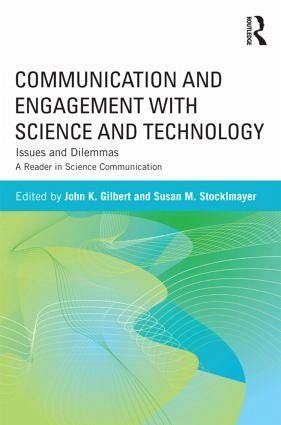
Communication and Engagement with Science and Technology
Issues and Dilemmas - A Reader in Science Communication
Herausgeber: Gilbert, John K.; Stocklmayer, Susan M.
Versandkostenfrei!
Versandfertig in 1-2 Wochen
63,99 €
inkl. MwSt.

PAYBACK Punkte
32 °P sammeln!
Science communication seeks to engage individuals and groups with evidence-based information about the nature, outcomes, and social consequences of science and technology. This text provides an overview of this burgeoning field ¿ the issues with which it deals, important influences that affect it, the challenges that it faces. It introduces readers to the research-based literature about science communication and shows how it relates to actual or potential practice. A "Further Exploration" section provides suggestions for activities that readers might do to explore the issues raised. Organized...
Science communication seeks to engage individuals and groups with evidence-based information about the nature, outcomes, and social consequences of science and technology. This text provides an overview of this burgeoning field ¿ the issues with which it deals, important influences that affect it, the challenges that it faces. It introduces readers to the research-based literature about science communication and shows how it relates to actual or potential practice. A "Further Exploration" section provides suggestions for activities that readers might do to explore the issues raised. Organized around five themes, each chapter addresses a different aspect of science communication: ¿ Models of science communication - theory into practice ¿ Challenges in communicating science ¿ Major themes in science communication ¿ Informal learning ¿ Communication of contemporary issues in science and society Relevant for all those interested in and concerned about current issues and developments in science communication, this volume is an ideal text for courses and a must-have resource for faculty, students, and professionals in this field.














